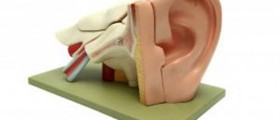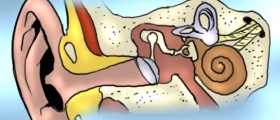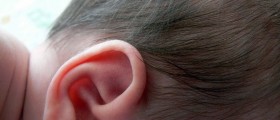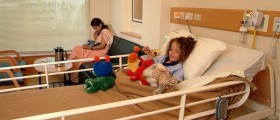Middle ear infections occurring behind the eardrum are known as otitis media infections. These infections can interfere with one's hearing processes and can thus lead to ear pain, hearing impairment and other related symptoms. This infection is quite common in infants and young children, but can occur in people of all ages. The ear is divided into the outer ear, the middle ear and the inner ear. Sound waves travel through the outer ear, into the middle ear and are then transmitted through the inner ear to the brain in the form of sound.
Two forms of this type of infection exist - acute otitis media and chronic otitis media. The former normally occurs after a viral upper respiratory tract infection, while the latter is an ongoing infection that might occur after the improper healing of the eardrum after a bout of acute otitis media.
Symptoms
Symptoms of the infections might differ depending on the type of infection. Some symptoms of this type of infection include chills, ear pain, fever, loss of hearing and a feeling of fullness in the ear. One might also experience a drainage of pus and blood from the ear canal. This might be an indication that the eardrum has ruptured. Some will suffer from irritability, fussiness and, in infants, poor feeding. Infants and young children might also regularly pull or tug at the ear.
This condition can in some cases be life threatening. If the patient suffers from changed consciousness, a change in mental status, a purple or reddish rash, seizures or a stiff neck, then medical attention should be sought as soon as is possible.
Treatment
Normally, treatment will focus on attacking the infection, minimizing pain and reducing the possibility of complications. Medicinal treatment might require the administration of medications such as Tylenol or antibiotic medications. Antibiotics can be taken in pill or ear-drop form. Corticosteroids can also be used in pain relief, and might also serve to reduce inflammation. The consumption of extra fluids might also prove beneficial. Additionally, one should look to get as much rest and sleep as possible, as this might help with the healing process. Follow-up medical care should be undertaken. This will help to evaluate the progress and efficiency of the treatment program, as well as helping to assess any possible complications that might occur. Surgery might be necessary in some cases, in order to drain excess fluid from the ear.











_f_280x120.jpg)





Your thoughts on this
Loading...